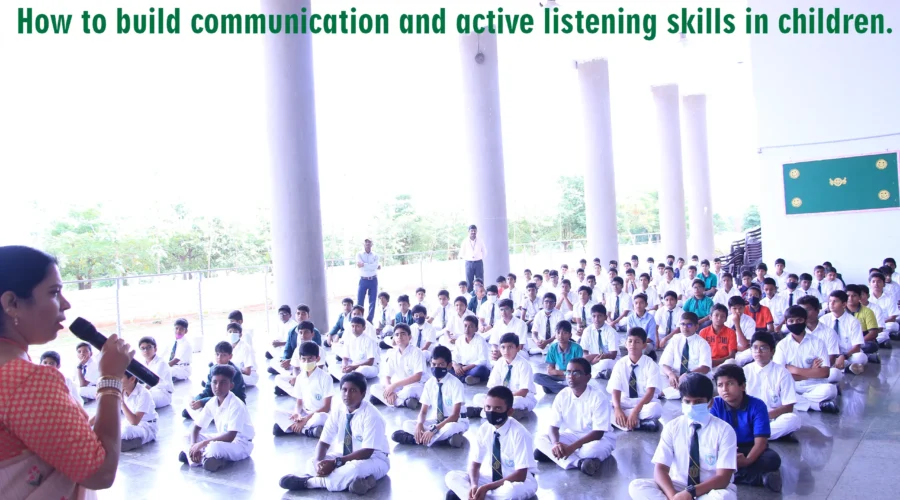Communication skills are described as the ability to express ourselves confidently in situations, effectively. Communication is for transferring one’s thoughts skillfully to other people and understanding theirs, promoting greater understanding among people. Communication skills can encourage the development of other important skills such as observing, listening, sequencing, and comprehension; these are all an essential combination of skillsets for better human relationships and for the development of children.
Types of communication skills to master:
1. Verbal –
Verbal communication includes delivering thoughts and emotions appropriately to other people to work well in a group. Kids should learn to speak appropriately as per the situation, and clearly to be successful in their careers as no matter what career they choose, communicating with employers, business partners, and colleagues is very important. Verbal communication is useful for a number of scenarios throughout life. Good verbal communication means using concise words, and sharing relevant information clearly, and in a tone that’s appropriate to the situation.
2. Non-verbal –
Nonverbal gestures are also essential while communicating since we perceive most of our information through non-verbal cues. Mastering body language is crucial to being a good communicator. Simple non-verbal gestures include maintaining eye contact while talking with the person they are conversing with. This shows that the person is interested and involved in the conversation and respects the other by paying attention to what they are saying. Some other non-verbal gestures include the use of facial expressions, smiles, hand gestures, nodding of the head as an acknowledgment of listening, and body postures for face-to-face communication during face-to-face conversations
Tips to improve communication skills in children:
1. Be an empathetic and active listener –
While talking, it is important that children feel they are being genuinely heard. Listening actively, and attentively is vital for effective communication skills. Be sure to be present while your child is sharing a story or experience. Wait for the child to finish asking your questions. Avoid giving unnecessary inputs which can derail them from their communication flow. You can certainly suggest your ideas and viewpoints to them when required or when they ask for them. You can also strike up a conversation with your child on common topics. Rather than just having just planned and boring conversations, be candid with kids and try to discuss their daily activities at school and also share your experiences. Solicit their opinions on their life and events around them.
2. Writing their thoughts –
Another tip to improve communication skills in children is by encouraging them to maintain a diary or a journal. Not every kid feels comfortable while talking about their emotions, or experiences but to improve communication, it is important that their thoughts are released in any form whether speaking or writing. For such children, writing a diary or a journal about everyday activities prove to be effective to a great extent. This activity will make them confident as they don’t stifle their thoughts and know how to express them.
3. Teach body language –
The right gestures, good body language, and control facial expressions are part of strong and effective communication skills. It could be tricky to teach children about appropriate body language since kids tend to be generally uninhibited in expressing themselves. Typically, children learn to mimic body language after the age of 7 and develop their own ways of communicating non-verbally too. The best way you can start is by first following these yourself while talking to them. While communicating with your kids, pay attention to your complete body language and not just words. When a child is talking to you, face them, maintain eye contact, and tilt or nod your head to show your responsiveness and attention. Some children are restless and they tend to interrupt others while speaking. That is the moment you should notice such tendencies and help them get rid of such habits by explaining the right way to ask questions during a conversation.
Helping kids become good at talking and understanding others is really important for their overall growth. Using words and how we express ourselves, both with and without words, are key for having good relationships and doing well in jobs when they grow up. We can do this by fostering empathetic listening, encouraging expressive writing, and teaching appropriate body language. By teaching these things early, we give our kids the tools to handle all sorts of situations and be successful in life. Just remember, a loving and supportive environment is where good communication starts for our kids.




